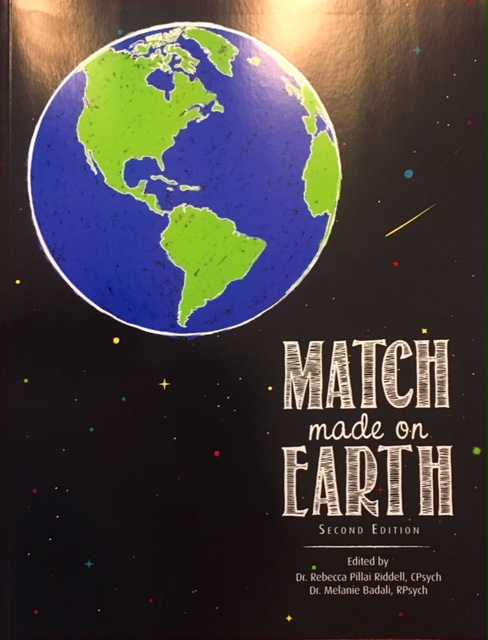
Dr. Melanie Badali
Vice President, Board of Directors, Anxiety Canada, Registered Psychologist, North Shore Stress & Anxiety Clinic
Dr. Melanie Badali is a Registered Psychologist with over 20 years of experience working as a clinician, researcher, educator and consultant in the field of psychology.
Media
Generalized Anxiety Disorder
Dr. Melanie Badali, Registered Psychologist, discusses Generalized Anxiety Disorder - its characteristics, treatment, and some things to keep in mind if you're living with it.
CBC Radio-Canada., November 7, 2017Radio/Podcast
URL: http://www.cbc.ca/player/play/2697300661
Obsessive Compulsive Disorder.
CBC Radio-Canada., May 15, 2017Radio/Podcast
URL: http://www.cbc.ca/listen/shows/bc-almanac/episode/12631796
Keep calm.
CBC Radio-Canada., August 23, 2017Radio/Podcast
URL: http://www.cbc.ca/listen/shows/the-early-edition/episode/13794599
Back to school anxiety and children.
CBC Radio-Canada, December 5, 2017Radio/Podcast
URL: http://www.cbc.ca/listen/shows/bc-almanac/episode/15065828
Exam Anxiety.
CBC, March 16, 2018Radio/Podcast
URL: https://podcast-a.akamaihd.net/mp3/podcasts/bcalmanac-BTJQkwca-20180316.mp3
Melanie Badali on spring break for children and parents
Burnout.
Reader’s Digest CanadaPrint
URL: http://www.readersdigest.ca/health/conditions/burnout-signs-never-ignore/view-all/
#Winemom culture is about SO much more than wine—and we need to talk about it
Motherly, April 4, 2018Online
How to prevent and cope with children's back to school anxieties.
Panic Attacks at Work
Global News, September 24, 2017Online
URL: https://globalnews.ca/news/3758255/panic-attack-at-work/
Featured expert in article on panic attacks in the workplace.
York University Press
July 1, 2017
Lambert Academic Publishing
September 13, 2013
978-3-659-45682-4
Accuracy of Children's and Parents' Memory for a Novel Painful Experience
by Melanie A Badali, Rebecca R Pillai, Kenneth D Craig, Kelly Giesbrecht, and Christine T Chambers.
Published by Pain Research and Management
Despite recent progress in understanding memory of pain in adults, the validity of the assumption that these findings extend to children has not been established. Because treatment often is evaluated on the basis of pain recall, it is important that the accuracy of pain memories in children be studied. The findings from this research indicate that children’s memories of a novel painful experience can be consistent over a long interval. Moreover, parents’ ratings also reflect good recall and can be in agreement with those of their children.
URL: https://www.hindawi.com/journals/prm/2000/705436/citations/
Pain in the social animal
by Kenneth D. Craig & Melanie A. Badali
Published by Behavioral and Brain Sciences
Human pain experience and expression evolved to serve a range of social functions, including warning others, eliciting care, and influencing interpersonal relationships, as well as to protect from physical danger. Study of the relatively specific, involuntary, and salient facial display of pain permits examination of these roles, extending our appreciation of pain beyond the prevalent narrow focus on somatosensory mechanisms.
A motivational model for understanding addiction and chronic pain
by Melanie Badali
Published by The Journal of Pain
Chronic pain appears to be substantially more prevalent among patients with active addiction than in the general population (Rosenblum et al., 2003). Preliminary research suggests that individuals vulnerable to developing addictions may be more sensitive to pain (Stewart et al., 1995). Additionally, the presence of active addiction may facilitate tolerance to analgesics thereby rendering standard treatments less effective in this population (Compton et al., 2000). However, our understanding of the etiology of comorbid addiction and chronic pain is incomplete and this population continues to be underserved. The purpose of this presentation is to present a motivational theory of vulnerability to substance-related disorders and chronic pain. A theoretical rationale for the model based on the opiate system, which has important roles in controlling pain, addiction, reward and response to punishment (Sharifi et al., 2001), will be presented. Because opiates can both alleviate pain and suppress the inhibitory effects of punishment on previously rewarded behavior (Gray, 1987), pain can be considered a potentially powerful motivating factor for drug use. The convergence of this hypothesis with the Motivational Theory of Drug Abuse Vulnerability (Pihl & Peterson, 1995), which suggests that individual differences exist in the functioning of motivation systems, will be discussed. As well, a systematic review literature supporting the proposed motivational model of chronic pain and addiction will be provided. Given the barriers to treatment encountered by individuals with comorbid chronic pain and substance abuse (Merrill et al., 2002), enhanced understanding the relationship between pain and substance use could facilitate development of etiologically-relevant treatment for dually diagnosed individuals. Implications for the development of a treatment program that would address the particular needs and characteristics of individuals with both substance abuse and chronic pain problems are discussed.
URL: http://www.jpain.org/article/S1526-5900(04)00550-4/fulltext
On knowing an infant's pain
by Kenneth D. Craig & Melanie A. Badali
Published by The Journal of Pain
Erroneous beliefs prevent effective management of infant pain, with the focus on self-report of the current definition of pain leading to neglect of nonverbal diagnostic information. Models of pain should consider not only experience but pain expression and how this is decoded and interpreted. The common-sense appeal of the belief that pain is a conscious experience is deficient, because there is no consensus on the nature of consciousness. Caregivers tend to self-reference and search for adult capacities for focal awareness in infants. The search seems to obfuscate our understanding of infant pain. Greater attention should be devoted to age-specific experience, the emotional distress of pain in infancy, and the important role of implicit information processing, or an impact for pain outside of focal attention.
Parental judgements of infant pain: importance of perceived cognitive abilities, behavioural cues and contextual cues.
by Rebecca Pillai Riddell, Melanie A. Badali, & Kenneth D. Craig
Published by Pain Research and Management
Despite blatant indications, such as behavioural and contextual cues, infant pain is often undermanaged by adult caretakers. The belief that infants are limited in their abilities to comprehend the meaning of an experience or recall that experience has been used to minimize or deny the need for intervention in this vulnerable population. In this research study, parents judged that infants undergoing a routine immunization were experiencing clinically significant levels of pain. However, despite generally acknowledging a developing trajectory for memory and understanding across the five age groups, parents did not indicate that a child's ability to remember and understand pain were essential features of their pain judgements. The results indicated that memory and understanding did not influence parental judgements of infant pain demonstrating the validity of the parents' self-assessments.
Introduction to the Special Series on Pain Deception and Malingering
by Kenneth D. Craig & Melanie A. Badali
Published by The Clinical Journal of Pain
Biography
Dr. Melanie Badali is a Registered Psychologist a with over 20 years of experience working as a clinician, researcher, educator and public speaker in the field of psychology. She is certified as an expert in the practice of Cognitive Behaviour Therapy (CBT) by the Canadian Association of Cognitive and Behavioural Therapies.
Badali currently practices at the North Shore Stress and Anxiety Clinic, where she provides psychological assessment and treatment services.
She serves on the Board of Directors for Anxiety Canada, a non-profit organization that increases awareness, promotes education, and provides resources for people who are dealing with anxiety. Her role at Anxiety Canada includes strategic direction, knowledge translation, and health literacy activities.
Badali communicates scientific knowledge about mental health in traditional and social media including Canadian Broadcasting Corporation, Global News, Reader’s Digest Canada, Chatelaine Magazine, Today’s Parent, Globe and Mail, and The Province.
She has authored and edited books including “The Social Face of Pain” and “Match Made on Earth” (now in its 2nd edition). She is a Laureate of the Canadian Psychological Association Certificate of Academic Excellence and has received numerous awards for her academic achievements, research and contributions to professional psychology.




